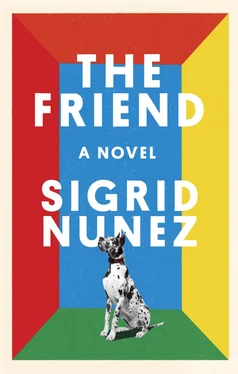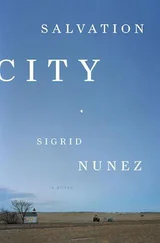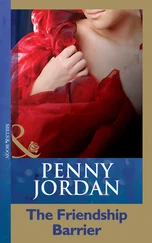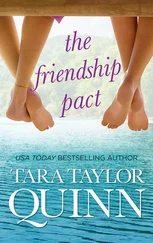• • •
It is Hector who brings the news, ringing my bell one late afternoon. The building management agent has advised the landlord that it’s not worth the trouble of contesting my request to keep Apollo as a support animal, especially since there have been no complaints about him from other tenants. (A friend points out that now that I have the certificate I could probably get away with having a dog in my apartment as long as I live there, even after Apollo has passed. Probably, but I have promised myself not to pull this trick more than once. And besides, I can’t bear to think of Apollo passed , Apollo replaced .)
Hector is grinning from ear to ear. I am damp-eyed with relief.
I think this calls for a celebration, I say.
And as it happens I still have that bottle of champagne my student gave me.
Anyone forced to contemplate an aging pet is like the poet Gavin Ewart wishing that his fourteen-year-old convalescent cat might get to have just one more summer before that last fated hateful journey to the vet.
I see the gray hairs on Apollo’s muzzle and the redness rimming his eyes, I see how stiffly he walks some days, how it sometimes takes two efforts for him to get to his feet, and I ache. The list of things the vet gives me to watch out for, common signs of disease and deterioration in senior dogs, makes me quail. ( How are you going to take care of him if he becomes infirm? ) In the six months between checkups, his arthritis has gotten worse.
One miracle is not enough. That disaster has been averted, that we are spared separation or eviction—I’m sorry, but it’s not enough. Now I am like the Fisherman’s Wife: I want more. And not just another summer, or two or three or four. I want Apollo to live as long as I do. Anything less is unfair.
And why, in the end, that inevitable trip to the vet? Why can’t he die at home, in his sleep, peacefully, like a good dog deserves?
Why, having saved him, must I now watch him suffer—suffer and die—and then be left alone, without him?
I think he knows when I’m having such thoughts. If he’s nearby, he will turn his attention to me, almost as if to distract me.
• • •
It is widely believed that although animals don’t know that one day they’ll die, many of them do know when they’re actually dying. So at what point does a dying animal become aware of what’s happening? Could it possibly be a long time before? And how do animals respond to aging? Are they completely puzzled, or do they somehow intuit what the signs mean? Are these foolish questions? I acknowledge that they are. And yet they preoccupy me.
• • •
Apollo has a favorite toy, a bright red tug toy made of hard rubber. I like the mock monster-dog noises he makes when we play tug-of-war. But most of the fun for him seems to be in letting me win. (I remain ignorant as to how aware he is or is not of his own strength; I’ve certainly never seen him use anything like the full force of it.) Other toys don’t interest him, though I keep buying new ones—as I keep taking him to the dog park, even though I’ve lost hope of seeing him play there. He is no more interested in other dogs than he is in other people. And this continues to bother me. Why won’t you play? So many nice friendly dogs at the park!
But why should this matter? I guess it’s like a parent wanting their kid to be, if not wildly popular, at least not a loner. I’d be so happy to see him make friends with just one other dog, maybe even fall in love. Just because he’s been neutered doesn’t mean he can’t have special feelings for another dog, does it? We often run into a stunning silver Italian mastiff named Bella. (Anthropomorphism, I’ve decided, is inescapable, and though I might try to hide it I no longer fight it.)
On the much admired trait of canine loyalty, the writer Karl Kraus has pointed out that it’s to people that dogs are loyal, not to other dogs. And so: maybe not the best example of the virtue. In fact, very often, dogs hate other dogs, even their own blood.
I saw it again just this morning. Two leashed dogs catch sight of each other and instantly start lunging and snarling.
Motherfucker. I hate you. Goddamn you. I’ll bite your fucking nose off, you stinking piece of shit. I’ll kill you. Lucky for you I’m on this leash, or I’d tear your fucking balls off.
All but choking themselves to death as they strain to get at each other.
Apollo is not like that. I have never seen him insult or attack or bully another dog. In spite of all he’s been through, he has remained kind, he has kept his—humanity, I want to say (what word should I say?).
One time we pass a stoop with a cat sitting at about the same level as Apollo’s head. The cat jumps up, goes horseshoe, and spits in his face. Apollo turns the other cheek: a paw shoots out and swipes it. For an instant I fear for the cat, but Apollo keeps walking. He doesn’t want trouble. He wants peace.
• • •
Even in old age, he is a creature of such arresting beauty that he regularly draws gasps.
To think what he was like in his prime.
It’s not uncommon to wish to have known what a person you’ve come to love was like before you met them. It hurts, almost, not to have known what a beloved was like as a child. I have felt this way about every man I’ve ever been in love with, and about many close friends as well, and now it’s how I feel about Apollo.
Not to have known him as a frisky young dog, to have missed his entire puppyhood! I don’t feel just sad, I feel cheated. Not even a photo to show what he was like. I have to make do with looking at harlequin Great Dane puppies in books, or online. An activity to which I confess I have devoted some hours.
It’s happened just once. Walking in SoHo, I run into another person walking a harlequin Dane. Both humans are thrilled, but the dogs look right past each other.
• • •
Something bad happens to the dog: a lesson learned early, from childhood books. The animals in those stories often die, often in bad ways. Old Yeller. The red pony. And even when they don’t die, even when they’re not just alive but happy at the end, they suffer, often badly, often they are put through hell. Black Beauty. Flicka. White Fang. Buck. The autobiography of Beautiful Joe, based on the life of a real dog and abounding in scenes of cruelty, begins with his brute owner slicing off Joe’s ears and tail with an ax.
No doubt like many other readers, I remember crying over these books (never so hard as over poor Joe), yet never regretting having read them. Is there anything more compelling than a story about a child and an animal who bond? When I first knew I wanted to write, I was sure this was what I would write about. But I never did.
When people are very young they see animals as equals, even as kin. That humans are different, unique and superior to all other species—this they have to be taught.
Children fantasize about a world populated solely by nonhumans. I liked to pretend that I was some kind of animal, a cat or a rabbit or a horse. I would try to communicate through animal sounds rather than speech and refused to eat with my hands. At times I kept this up for so long and with such conviction that it became cause for parental concern. A game, but at the core of it something dead serious, a trace of which has been carried into adulthood: the wish not to be part of the human race.
• • •
Something bad happens to the dog in Milan Kundera’s novel The Unbearable Lightness of Being . The dog is given as a pup by the main protagonist, Tomas, to his wife, Tereza—for the very same reason, we are told, that he married Tereza: to make up for the pain and humiliation his incorrigible womanizing causes her. Though female, the pup is whimsically named after a male character in another novel: Anna Karenina’s husband. Karenin the dog hates change, loves being in the country, where he makes friends with a pig, and, after developing terminal cancer, is put to sleep.
Читать дальше












